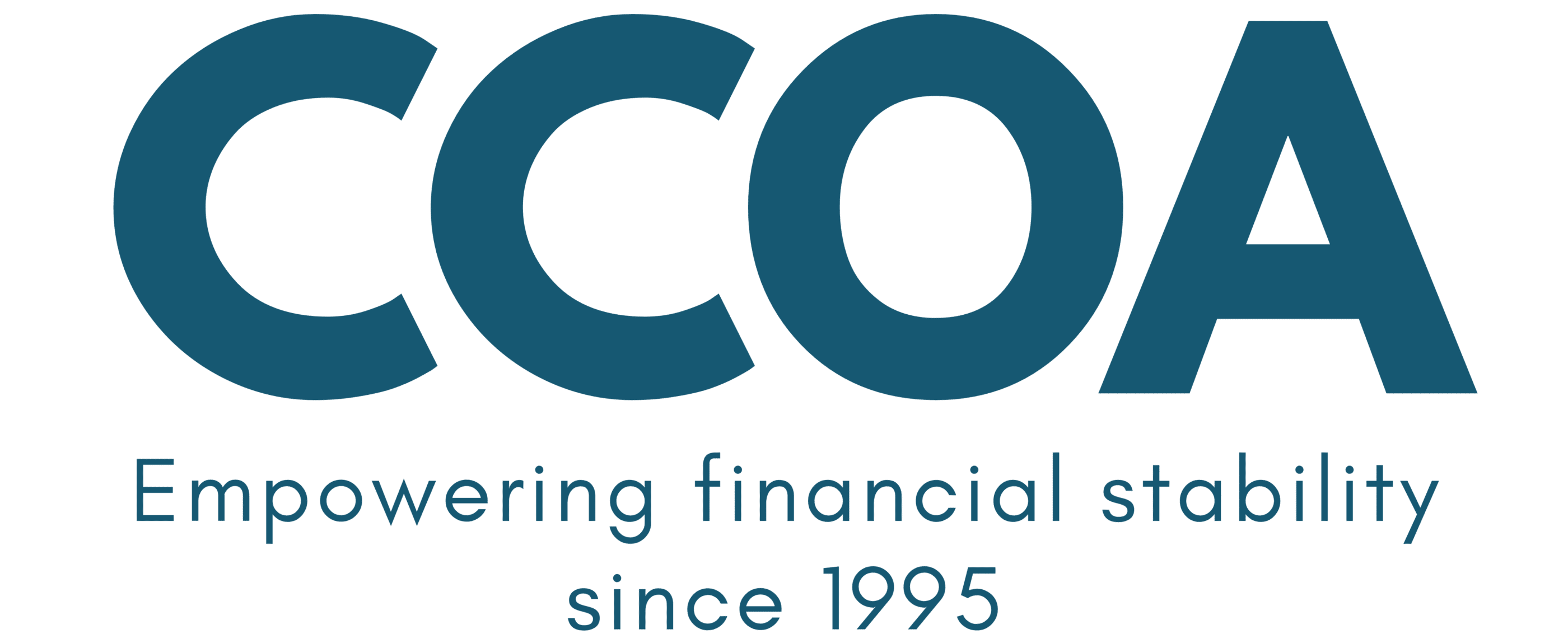
Facing the unknowns during a job loss can be terrifying
One of the primary reasons our friends and neighbors reach out to CCOA is to work through the life events that come their way. A job loss, a divorce, a parent moving in or a child moving back home – many of these events are unexpected and all of them have an impact on a person’s finances. Of these life events, one of the most financially challenging is a job loss. Working through a loss of income can be a challenge, but there are some time-tested strategies for weathering financial storms. The following four tips can help you or someone you know create a strategy to make it through an unexpected loss of income or job transition.
1. Go Into Financial Survival Mode
Hope for the best, but plan for the worst. Track your spending for at least two weeks to see where your money is going. We advise people to do this through their online banking account, bank statements or other reputable tools that track and categorize spending. Once you’ve started tracking where your money is going, develop Your Emergency Spending Plan by determining which expenditures can be reduced or eliminated completely for now. Some categories we recommend starting with are eating out and entertainment like music or video subscriptions. Many of our clients free up $250 or more each month when reducing spending on these categories alone.
2. Prioritize Your Spending!
To be sure your dollars stretch, prioritize where your money is going. Some bills might be noisy (calls, notices, etc.), but you may have to ask them to wait so you can take care of the basics. Here’s how we suggest prioritizing.
Priority 1: Shelter and food (groceries, not restaurants)
Priority 2: Automobiles and other secured debt (Don’t think repossession of an automobile will eliminate your payment; it usually results in a large unsecured debt)!
Priority 3: Unsecured creditors (credit cards, medical debts, collection agencies).
Priority 4: Nonessential living expenses.
Keep in mind that your emergency spending plan is temporary! You can always re-add faster internet, movie channels, going out to eat, etc., once back on your financial feet. Need help getting started? Use our planning resources to take the first steps.
3. Increase Your Available Cash
Avoid liquidating your retirement account (This would include using the equity in your home.). True, it is money available to you, but it has financially damaging drawbacks, so consider it like a tool of last resort.
Sell some stuff online. Rule of thumb: Anything that can be replaced. This NerdWallet article has great recommendations for where to sell and how to get started.
Downsize your vehicle or car payment. If you have an expensive vehicle you are paying on, you may at some point need to consider downsizing to a more affordable one, which will reduce or eliminate your car payment. However, avoid selling a vehicle if you’re underwater (owe more than the vehicle is worth) because you’ll have to pay the dealer or your bank the difference between the what you owe and what the vehicle is worth. For more information on when to sell a vehicle, check out this article on how to sell a car when you still have a loan.
Be frugal with big purchases. A big purchase might be really necessary. The fridge is on it’s last leg or the car needs new tires, and you have to spend the money. It might be really tempting to use an infusion of cash like a tax refund or a stimulus check on a some version of what you need with all the bonus features, warranties and insurances. Rather than sinking $1,500 into an appliance, buy a more modest model and put the remainder in an emergency fund.
Talk with one of our certified financial experts to look at your resources, budgeting, credit, debt or housing counseling issues and come up with a plan of action. It is free and confidential.
Check out this great resource from ConsumerFinance.gov on ways to increase income and free up cash.
4. Bring Good Out of the Situation
Though incredibly stressful, remember to keep telling yourself that this is a temporary setback. A positive attitude can go a long way in keeping your focused on your future goals. Also, while you may not have any extra money right now, you may have extra time — something you might not normally have. Use it to strengthen relationships with family and friends, serve your community and invest in yourself. When you and your relationships are healthy, the future outlook can get a lot brighter. Finally, consider switching directions. Have you ever toyed with the idea of going to — or back to — college or vocational training? Now would be a good time to take a closer look at that possibility.





